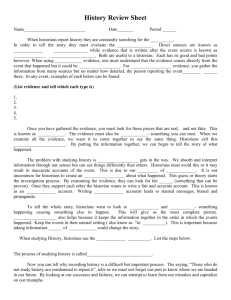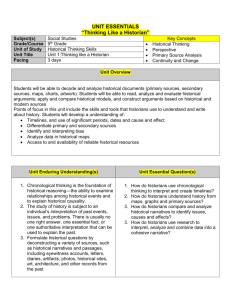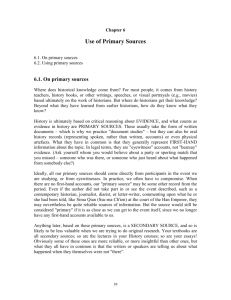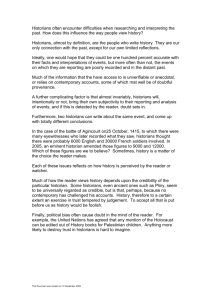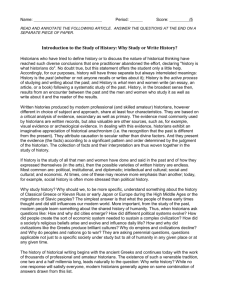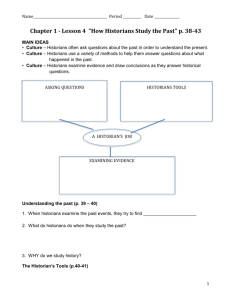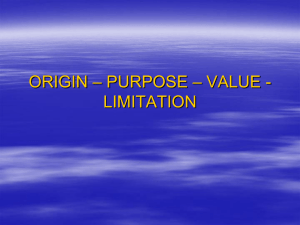What do historians do?
advertisement
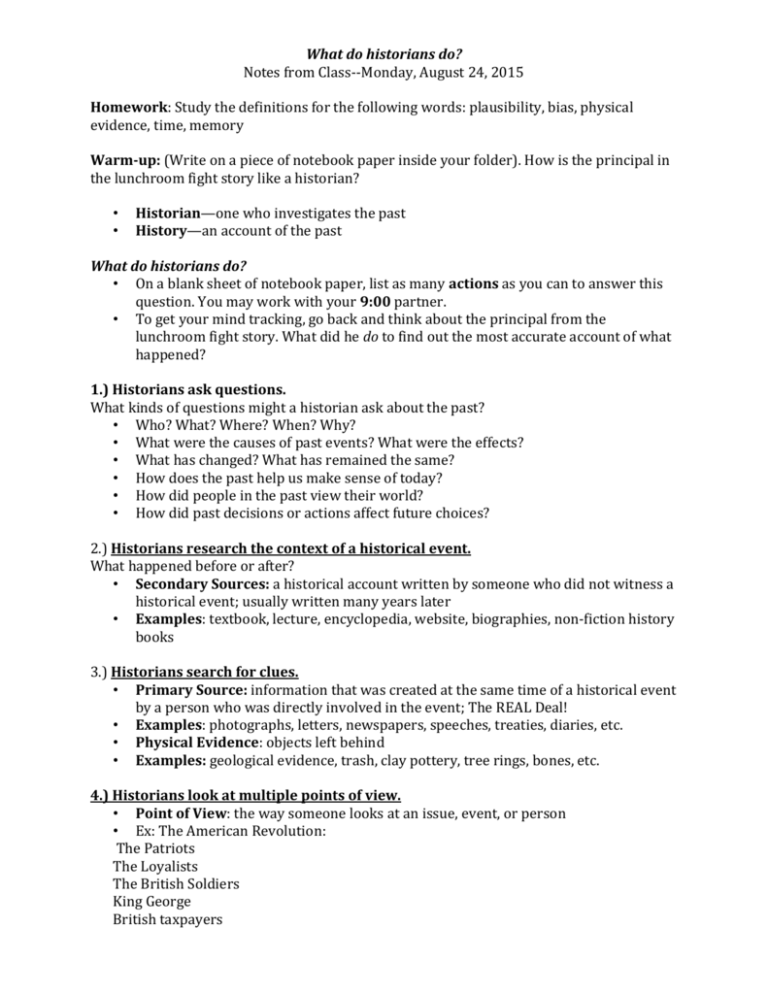
What do historians do? Notes from Class--Monday, August 24, 2015 Homework: Study the definitions for the following words: plausibility, bias, physical evidence, time, memory Warm-up: (Write on a piece of notebook paper inside your folder). How is the principal in the lunchroom fight story like a historian? • • Historian—one who investigates the past History—an account of the past What do historians do? • On a blank sheet of notebook paper, list as many actions as you can to answer this question. You may work with your 9:00 partner. • To get your mind tracking, go back and think about the principal from the lunchroom fight story. What did he do to find out the most accurate account of what happened? 1.) Historians ask questions. What kinds of questions might a historian ask about the past? • Who? What? Where? When? Why? • What were the causes of past events? What were the effects? • What has changed? What has remained the same? • How does the past help us make sense of today? • How did people in the past view their world? • How did past decisions or actions affect future choices? 2.) Historians research the context of a historical event. What happened before or after? • Secondary Sources: a historical account written by someone who did not witness a historical event; usually written many years later • Examples: textbook, lecture, encyclopedia, website, biographies, non-fiction history books 3.) Historians search for clues. • Primary Source: information that was created at the same time of a historical event by a person who was directly involved in the event; The REAL Deal! • Examples: photographs, letters, newspapers, speeches, treaties, diaries, etc. • Physical Evidence: objects left behind • Examples: geological evidence, trash, clay pottery, tree rings, bones, etc. 4.) Historians look at multiple points of view. • Point of View: the way someone looks at an issue, event, or person • Ex: The American Revolution: The Patriots The Loyalists The British Soldiers King George British taxpayers 5.) Historians question the reliability of the source. • Is it plausible? • Is it biased? • How much time has passed when the account was recorded? • Is the memory of the witness reliable? Discuss with your 9:00 partner. • Is history perfect? • Can there be multiple, conflicting versions of a historical account? • What kinds of mistakes can historians make?


